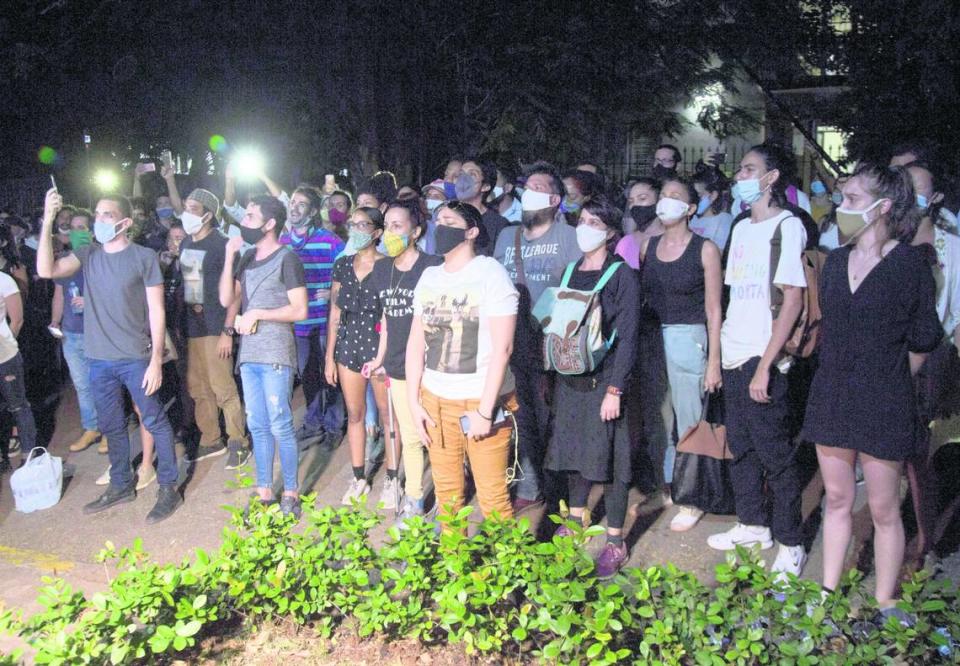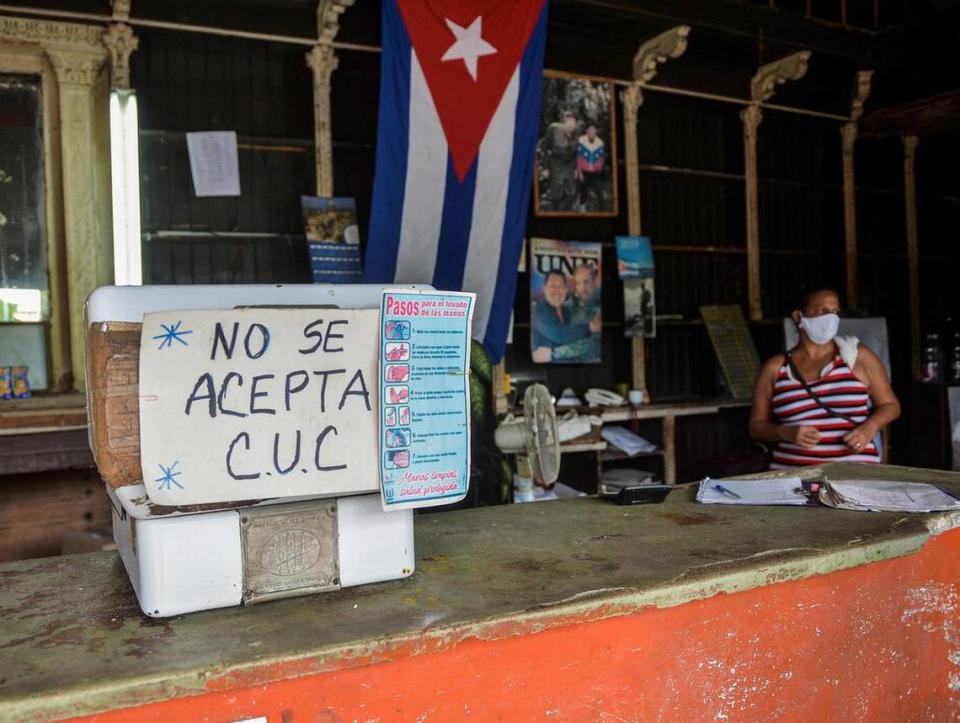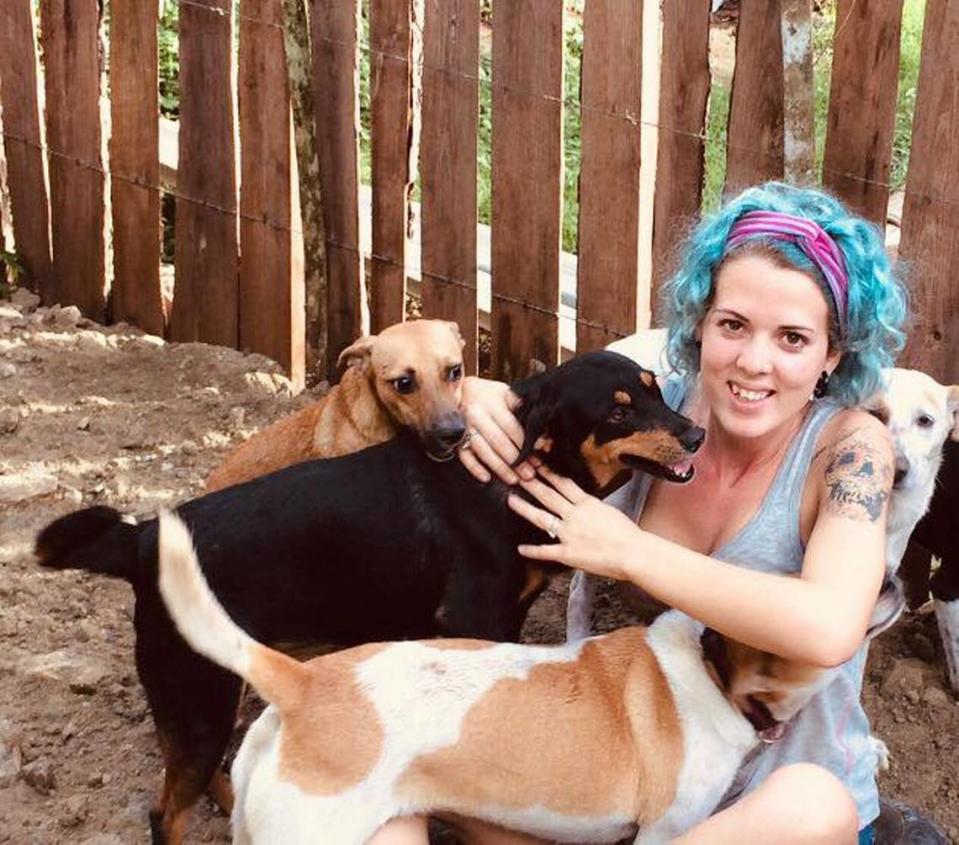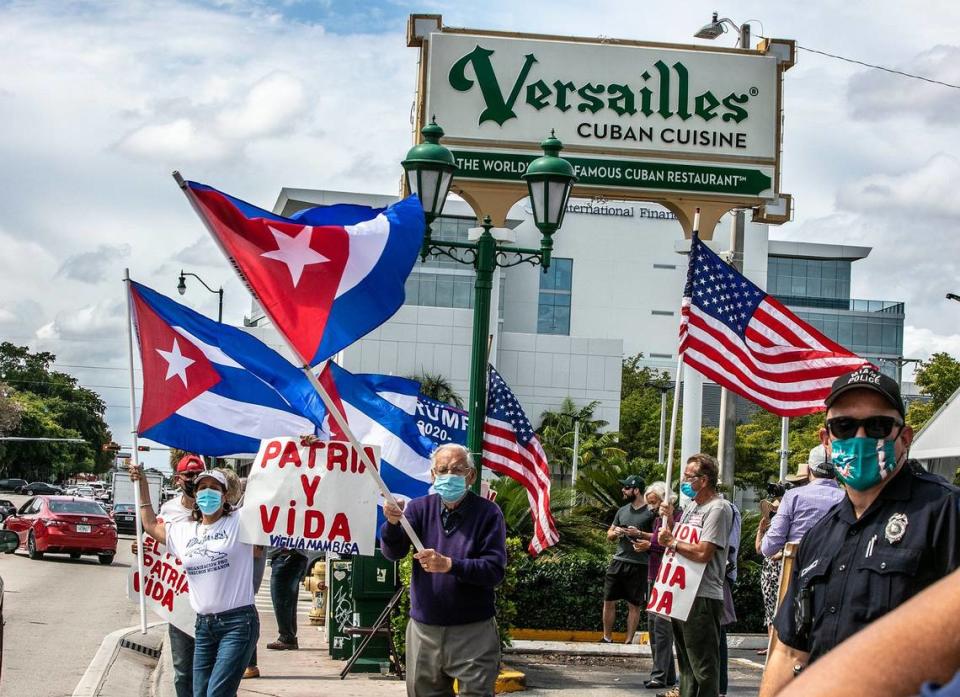Cuba’s budding civil society asks to be heard as island prepares for historic congress
Hundreds of young artists protest on a sidewalk outside the white mansion housing Cuba’s Ministry of Culture in Havana’s once aristocratic Vedado neighborhood. Famous musicians long aligned with the communist government poke a finger at the revolution with a song that mocks a slogan penned by Fidel Castro. Rights activists march through the streets demanding greater protections for animals.
Cuba’s upcoming Communist Party Congress, in which Raúl Castro is expected to hand the reins of power to a younger generation of leaders, coincides not just with a deep economic crisis but also the advent of a nascent civil society movement demanding greater freedoms and channeling growing discontent on the island.
In the lead up to the conclave, opposition groups have called on Cuba’s leaders to open the debate on the island’s future to a more diverse range of voices and consider significant reforms to the island’s one-party system and Soviet-style economy.
While state authorities continue to employ strong-arm tactics against dissidents, expanded access to the internet has given anti-government organizations a wider platform.
“We’ve sent concrete proposals to the Cuban government on how to overcome the economic, political and social crisis that the country is experiencing,” said Yaxys Cires, coordinator of the non-profit Cuba Humanista, a group that advocates for greater democratic liberties on the island. “Cuban entrepreneurs must be given opportunities to develop their ideas without being hindered in order to help the country.”
Cuba in crisis
The congress in which the 89-year-old Castro is expected to resign as first secretary of the party — considered the most powerful position on the island — comes nearly five months after several hundred artists and intellectuals gathered in front of the Ministry of Culture in a protest against the government unlike any seen in decades on the island.
Sparked by the arrest of a dissident rapper, the San Isidro Movement quickly morphed into a larger debate about freedom of expression on the island. A year earlier, the Cuban government had passed a decree prohibiting musicians, visual artists and other performers from holding shows in public or private spaces without the approval of the culture ministry.
In response to the protest, authorities agreed to a dialogue, but officials later called it off, saying they wouldn’t engage talks with artists they deemed U.S.-backed “enemies of the revolution.” Cuban leader Miguel Díaz-Canel, Castro’s handpicked successor as president, staged his own protest in Havana, decrying the dissident group as a “farce.”
“They were wrong about the country,” he said. “Wrong about history.”
In the following months, artists and intellectuals have continued pressing for wider civil liberties. Cuban reggaeton duo Gente de Zona and other musicians living on the island released a song called “Patria y Vida” — or “Homeland and Life” — turning the revolutionary slogan “Homeland or Death” on its head. The song has become an anthem for frustrated Cubans tired of the island’s dismal economy, lines for food and stale politics.
Though the congress is expected to be an ode to continuity, Cuba’s severe economic contraction, emerging civil society, and expanding access to information over the internet mean officials risk further disenfranchising the public by outright dismissing them, said Ted Henken, a professor of Latin American studies at Baruch College in New York.
“It is increasingly dangerous for those who have long been ‘powerful’ to ignore the growing but diffuse power of the ‘powerless,’” Henken said, referring to the words of Vaclav Havel, the former Czech president whose Velvet Revolution ended 40 years of communist rule.

Censorship and revolution
Artists have long been viewed with suspicion under Fidel Castro’s revolution. In an early speech to intellectuals, he made their boundaries clear, famously declaring, “Within the revolution everything, outside the revolution, nothing.”
Writers such as Heberto Padilla and Reinaldo Arenas were censored, jailed and compelled to escape into exile. In the 1990s, as Cuba plunged into an economic crisis after the collapse of the Soviet Union, the government opened a limited space for critical works as an escape valve. But state censorship has continued, and many artists simply refuse to discuss politics, some fearing reprisals from the government.
“When you grow up in a regime like the Cuban one, you get used to living in fear,” Randy Malcom, one of the members of Gente de Zona, told EFE news agency. “There were times we gave interviews and when they asked us about politics, we lowered our voices even though we didn’t say anything controversial.”
The new generation of artists, intellectuals, and journalists who comprise Cuba’s incipient civil society are pushing for everything from political changes to the protection of stray dogs that are a mainstay on Cuban streets.
Tania Brugera, a Cuban artist who links her work to social activism, has been one of the most visible faces of the island’s civil society. In November, she participated in negotiations with the vice minister of culture, Fernando Rojas, and has since promoted what is known as the 27N movement, coined for the date in November of last year’s protest.
“We Cubans have gone from complaining about day-to-day problems to demanding changes,” she said. “And this is a great change.”
The mounting social tensions on the island are closely linked to Cuba’s souring economy. The island is experiencing its worst economic crisis in three decades. Economists project inflation could soar to 500% this year. Lines for basics like food and soap have reappeared. And Cubans have watched their salaries diminish in value following a painful currency adjustment that effectively devalued the peso by 96%.

On Monday, the 27N group published a manifesto outlining four main proposals they say would create a more inclusive country, including legalizing dissent.
For Dagoberto Valdés, a member of the Center for Coexistence Studies, an independent think tank in Pinar del Río, Cuba’s evolving civil society is “a sign of maturity and hope.”
“It is also a sign that democracy begins from below, horizontally and not only at the heights of free elections and a multi-party system, which are also necessary,” he said.
Aside from political activists, there are also new voices like Leidy Laura Hernández, 24, who has been running an animal shelter in the central city of Santa Clara for three years. She and her family live with more than 40 dogs, cats and birds.
Hernández participated in the first independent demonstration authorized under the communist regime in six decades two years ago. Hundreds of activists took the streets to protest abuse against animals. Cuba’s government recently passed an animal welfare law, considered a major victory for civil society, though it stopped short of banning activities like cockfights.
“That was a great achievement,” Hernández said. “Public pressure did it.”
Although the official Cuban press has accused the animal activists of harboring “dark interests” of “imperial domination,” authorities have promised to engage with the protesters and speed up implementation of the newly approved animal protection law.

Cuban diaspora weighs in
From exile, activists like Laritza Diversent are trying to support the new civil society groups. The leader of Cubalex, an independent legal group, she advises those on the island trying to navigate a convoluted legal system.
“The system allows state institutions to use the law to repress,” she said. “There is a lot of risk in doing activism in Cuba because you can be prosecuted for crimes such as ‘an attack on international peace,’ ‘an illegal gathering and demonstration.’”
She said a civil society can be considered strong when it has the ability to influence state structures and generate change, whereas in Cuba the state “ignores civil society and the institutions are designed to prevent the expansion of independent groups.”
As the Communist Party Congress approaches, artists and activists said they are experiencing heightened levels of repression and vigilance.
Maykel Castillo said he had been beaten by two officers who broke his nose. Several independent journalists from new online outlets have not left their homes for days, saying they have been placed under house arrest.
“Since the last demonstration, they hardly let people get close to anyone at my house,” artist Luis Manuel Otero Alcántara said. “I’m not afraid. We are very connected and we will continue to transform repression into art.”

Follow me: @MarioJPenton

 Yahoo Movies
Yahoo Movies 
